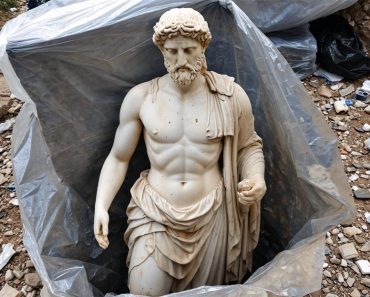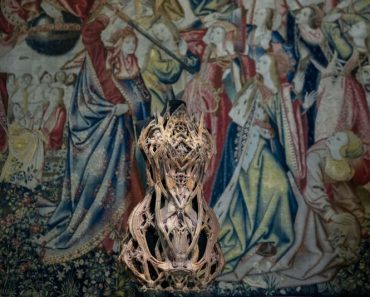He might have been sitting in a packed lecture hall, but Classics and Archaeology student Wesley Prankard’s first-year class with Instructor Anton Jansen transported him to the world of Ancient Greece.
It’s an experience Prankard, now in his third year, will never forget.
“The last few minutes of any lecture students start shuffling around getting ready to pack up, but not a single person made a sound as Anton Jansen told stories of early Greek society. When class was over, nobody stirred — we just wanted to hear more,” he said.
A visit to the Classics and Archaeology undergraduate lounge around lunchtime on any given day will corroborate Prankard’s story.
“Being taught by Anton Jansen is like emerging from Plato’s cave and seeing the sun for the first time,” said Walker Green, a fourth-year Classics and Archaeology student.
According to Jansen, it all comes down to good storytelling.
“I’ve got information that I think is really interesting, it’s cool to me, and I can turn it into a narrative and share it with others. When students see that you are interested in something, they will catch on and want to know more too,” he said.
As an undergraduate student at the University of Alberta, Jansen originally started down a pre-med path but quickly realized his heart belonged to humanities after studying classics, setting him on a very different trajectory.
Early in Jansen’s teaching career, he was inspired by the ancient Greek historian Herodotus, who is famous for presenting history through telling stories.
“Even though Herodotus never let the facts get in the way of a good story, he also had some really good ideas. He was writing to an audience in a new way that assumed readers were not familiar with concepts, but he wanted to bring people in and help them understand,” he said.
Currently in his 31st year teaching at Brock — just over half of the University’s history — Jansen has run the gamut of teaching topics including Greek history, Roman history, introduction to Greek society, Greek myths, classical arts and literature, and Latin and Greek languages.
Jansen’s teaching philosophy draws inspiration from how the Greeks and Romans, especially philosophers, gathered to break bread, bond and engage in philosophical conversation.
“Storytelling gets us to place where we are all together. We can say things we think, share ideas and get honest opinions. This sense of peace — ease — the ability to talk and learn in a comfortable environment is where the magic of learning really happens,” he said.
This past December, Jansen made history at Brock’s Centre for Pedagogical Innovation’s (CPI) Tribute to Teaching awards receiving the Clarke Thomson Award for Excellence in Sessional Teaching and the Don Ursino Award for Excellence in Teaching large classes in the same year.
Giulia Forsythe, Director, Teaching and Learning (CPI), said a double win was unprecedented in the 15 years the awards have been presented, sharing that adjudication committees were moved by Jansen’s numerous letters of support from former students, teaching assistants and colleagues.
“Anton was described as a ‘storyteller on a mission’ who centres joy in all his teaching. His incredible breadth of teaching experience spans classes of all sizes,” she said.
Noting Jansen’s innovative teaching style, Forsythe encouraged Brock faculty, instructors and teaching assistants to explore new approaches at CPI’s Spring Perspectives on Teaching and Learning 2025.
“Inspired by the meaningful work of educators like Anton, CPI’s spring event will bring our University community together to explore innovative teaching and learning practices with big impact,” she said.
Reflecting on the past and present of his career, Jansen said he loves being a classicist in today’s landscape as the field digs into ancient attitudes and beliefs towards class, race, slavery and gender roles to address current-day global issues.
“If we have two ancient societies we can study, and people have been people for the past 2000 years, what does that tell us about them, and how do they compare to us? Where do we come from, why do we have the ideas that we do; the field of classics asks that,” he said.







